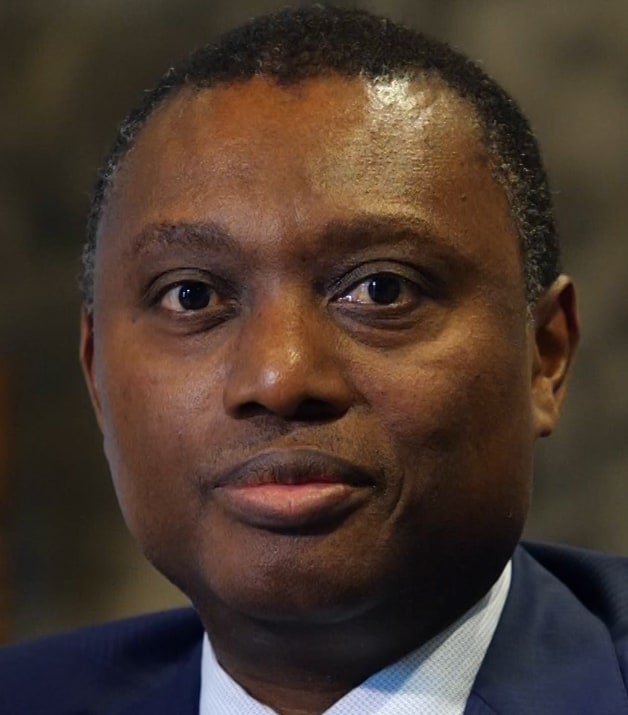Sim Tshabalala, CEO of Standard Bank, speaks about the health crisis and Africa’s recovery.

Global Finance: What were the key factors in Standard Bank’s success in 2020?
Sim Tshabalala: The pandemic placed considerable strain on our retail, business and corporate clients, particularly in South Africa, but our strong capital and liquidity position enabled us to respond quickly and robustly.
The group provided substantial support to clients, employees and communities throughout the year, with 129 billion South African rand [$8.8 billion] provided to individuals and businesses and R25 billion to corporate clients. We also expanded our digital solutions, enabling our clients to continue to transact and our employees to continue operating productively during enforced lockdowns—efforts that led to client satisfaction and retention, as well as growth in the underlying client franchise.
Our overall results were significantly impacted by the pandemic, but there were several bright spots in a generally somber picture. Our diverse client base, geographic footprint and business mix supported a growth in headline earnings of 9% and 4% in constant currency in our Africa Regions businesses.
Our Global Markets business also performed well, with revenue up 28% on the back of strong risk management and increased client activity—with strong performance in West Africa, and with South and Central Africa also recording good revenue growth.
Our Corporate & Investment Banking division continued focusing on providing tailored solutions to meet clients’ liquidity, capital and risk-management requirements, and our Sustainable Finance team facilitated several landmark deals in this area, despite the challenging conditions.
GF: What strategic developments will ensure the bank’s continued success?
Tshabalala: Standard Bank Group’s resilience is underpinned by a diverse client base and varied revenue streams. The recovery brings opportunities to extend our balance sheet to support business and consumer activity as they recover and continue building the franchise.
As we continue responding to the evolving needs of our clients and employees, we are accelerating the implementation of our strategy. In early 2021, the group shifted from a traditional business-line-led structure to a client-led model with three core client segments—Consumer & High Net Worth, Business & Commercial and Wholesale Clients. This better enables and supports our ambition to be truly digital and efficient, while remaining a human and empathetic business.
We also plan to leverage our core strengths in financial services, while seeking new ways to expand our offering and further diversify our revenue streams.
As the largest financial services group operating on the African continent, we recognize the need for inclusive and sustainable growth and environmental sustainability. We will continue to promote and balance these goals. In addition, we will continue to improve the transparency and reporting of the group’s positions on key ESG matters, in line with global best practice.
GF: What are the main economic challenges currently facing the region?
Tshabalala: 2020 was of course dominated by Covid-19. We mourn the colleagues, family and friends who passed away and honor their memory by striving every day to support economic and social development on our continent, as embodied in our core purpose: “Africa is our home; we drive her growth.”
In much of sub-Saharan Africa, while the health impact of the pandemic was less severe than other places, the socioeconomic implications were marked, and capacity to implement large-scale policy packages was limited. The more diversified East African economies fared better than the more oil-dependent West, and general-resource economies were buoyed by the faster China recovery. In South Africa, the pandemic stretched health systems to the limit and stringent lockdowns significantly disrupted economic activity. The economic contraction and the policy responses that followed placed additional strain on South Africa’s fiscal position.
GF: How quickly can the region recover?
Tshabalala: Vaccine-fueled improvements in confidence, demand and trade together will help to drive a global recovery, albeit a bumpy and uneven one. But while initiatives to source vaccines for Africa are gaining momentum, some countries in the region may lack the resources and capabilities to roll them out on a large scale in 2021.
South Africa’s recovery is expected to be multiyear and closely linked to path of the pandemic and to the effectiveness of its vaccine rollout program. Inflation is expected to remain within the South African Reserve Bank’s target range, with interest rates at low levels for the duration of 2021. The latter should support credit growth.
Steady governance and structural reform are expected to continue under the current administration, albeit slowly, due to South Africa’s political and administrative realities.



